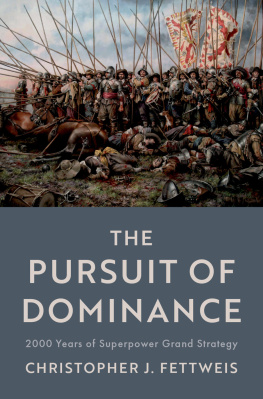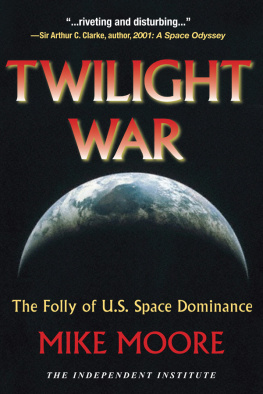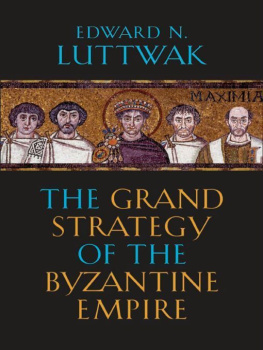The Pursuit of Dominance

Oxford University Press is a department of the University of Oxford. It furthers the Universitys objective of excellence in research, scholarship, and education by publishing worldwide. Oxford is a registered trade mark of Oxford University Press in the UK and certain other countries.
Published in the United States of America by Oxford University Press
198 Madison Avenue, New York, NY 10016, United States of America.
Christopher J. Fettweis 2023
All rights reserved. No part of this publication may be reproduced, stored in a retrieval system, or transmitted, in any form or by any means, without the prior permission in writing of Oxford University Press, or as expressly permitted by law, by license, or under terms agreed with the appropriate reproduction rights organization. Inquiries concerning reproduction outside the scope of the above should be sent to the Rights Department, Oxford University Press, at the address above.
You must not circulate this work in any other form and you must impose this same condition on any acquirer.
Library of Congress Cataloging-in-Publication Data
Names: Fettweis, Christopher J., author.
Title: The pursuit of dominance : 2000 years of superpower grand strategy /
Christopher J. Fettweis.
Description: New York, NY : Oxford University Press, [2023] |
Includes bibliographical references and index.
Identifiers: LCCN 2022027377 (print) | LCCN 2022027378 (ebook) |
ISBN 9780197646649 (hardback) | ISBN 9780197646663 (epub)
Subjects: LCSH: StrategyHistory. | StrategyCase studies. |
Great powersHistory. | Great powersCase studies.
Classification: LCC U162. F48 2023 (print) | LCC U162 (ebook) |
DDC 355.02dc23/eng/20220909
LC record available at https://lccn.loc.gov/2022027377
LC ebook record available at https://lccn.loc.gov/2022027378
DOI: 10.1093/oso/9780197646649.001.0001
To Diddy and Special K
Contents
What should the United States do with its power? What goals should it have, and how should it pursue them? What kind of America should lead the world in the twenty-first century?
Ultimately, what do we want this country to be?
These are the basic questions of grand strategy, and Americans are hardly the first people to ask them. Many of historys superpowers found answers, seeking to make themselves secure and prosperous, to spread their ideologies and ideals, andmaybe most importantto assure that their power remained super. All strong countries want to preserve their status and maintain the favorable systemic status quo.
Attempts to maintain the status quo are rarely the stuff of exciting historical drama. There are many books that recount the remarkable rise of Rome, for example, and even more that examine its dramatic fall, but far fewer that look at the times in between. Even contemporaries seemed less interested in the preservation of greatness: we have quite meager sources for the most successful reigns at the empires peak, those of Hadrian and Antoninus Pius (together 117161 AD), since their peaceful, stable era lacked the massive spectacles that set the pens of historians in motion. Much more attention is paid to the conquests and crises, the triumphs and blunders. Competence and honorable governance are comparatively boring.
This book seeks to enliven historys comparatively boring bits. It is less interested in how historys greatest powers rose or fell than in how they ruled; it examines not revision but maintenance. Even the safest of countries face challenges, both real and imagined, and their reactions determine how long they stay safe. With great power comes great responsibility, as the saying goes, and strong countries often seek to improve the world in one way or another. They have the luxury to prioritize things other than their most basic needs. As it turns out, maintaining a favorable status quo can be just as difficult as arriving at one in the first place, sofortunately for the readergrand strategy is never boring. Hadrian can teach us as much as Augustus.
If it is foolish to attempt to please both experts and laymen, then this book is foolish from the start. Its target is the person who knows little but who is interested in much, one who can learn fast and think analytically. Each chapter reflects the opinion of generations of historians but adds original analysis and thoughts. Perhaps only experts will know where I add to conventional wisdoms (and perhaps too only they would care) in my attempt to explain how historys strongest powers endeavored to stay that way. No two cases are the same, thank goodness, and each contains plenty for us moderns to consider.
This work comes out of a class that I have taught for about a decade at Tulane University, one based on a course first constructed by Admiral Stansfield Turner at the US Naval War College in the early 1970s. Turner, who was president of the college, wanted to improve the strategic expertise of those in uniform. Under his guidance the professors at the war college examined grand strategies from the past, speculating about their lessons and relevance to the challenges of their time. The long Peloponnesian War between Athens and Sparta, for example, seemed like it might have something to teach the United States during the Cold War. The course is still taught in much the same way today.
At Tulane I changed the cases to reflect the conditions the United States faced in the early twenty-first century. The United States stood alone atop the international system, the strongest country in almost every measurable (and quite a few unmeasurable) category. The wisdom of the Athenians was made less urgent without a modern version of Sparta. Rome seemed more relevant. Historys solo superpowers were more pertinent than those with a rival of roughly equivalent strength; I became interested in how the Tang Dynasty stayed in power, and how the Ottomans ruled a polyglot empire in the worlds toughest neighborhood for so long, and how the British maintained their dominance at sea.
These comparisons might strike some readers as odd, since the United States is not (nor does it seek to be) an empire. Others might claim that its strength is not as great as these others, or that it is shrinking, making U.S. superpower a thing of the past. With such notions I disagree, and explain why in the coming pages. Perhaps most observers might agree, however, that the United States remains quite powerful, more indeed than any potential rival, relative decline notwithstanding. Thus there may well be something to learn from historys previous dominant states, even for those unconvinced that the United States is one of them.
In the chapters to come I make no effort to relate history evenhandedly or completely. That has been done for every case here many times, and much better than I could ever do. This is a work of strategic analysis rather than historical description, one in which I will emphasize the elements of the cases that relate to their grand strategies (and take diversions and digressions as my interests dictate). The chapters are narratives that contain discussions of national ends, ways, and means. The why and how of grand strategy drive the stories, rather than the other way around. Throughout I try to synthesize history and security studies, and to merge what scholars refer to as the security-studies and strategic-studies approaches to grand strategy, in ways that may strike experts as distasteful. But what do experts know anyway.









